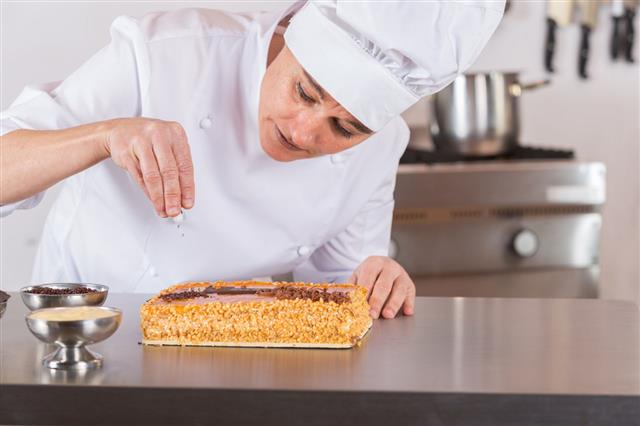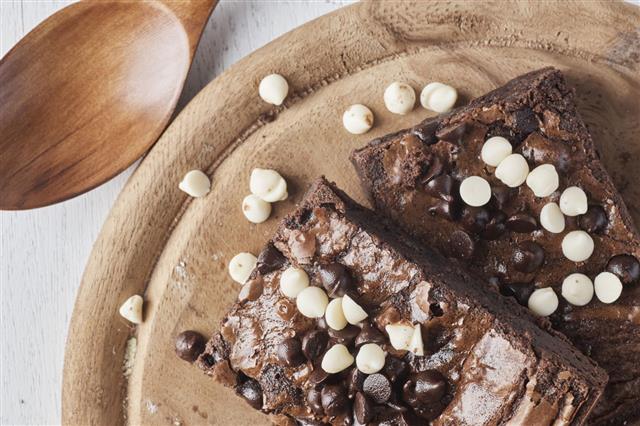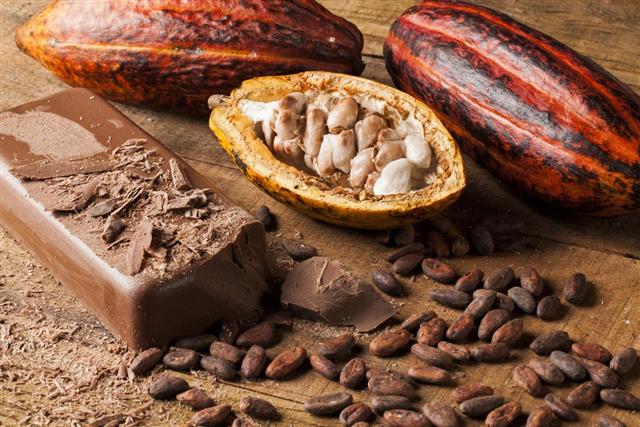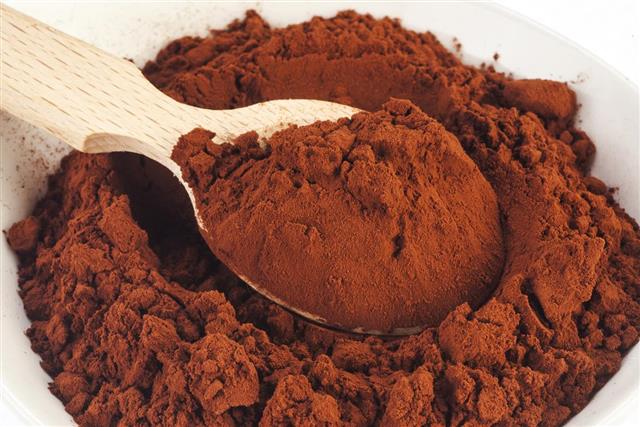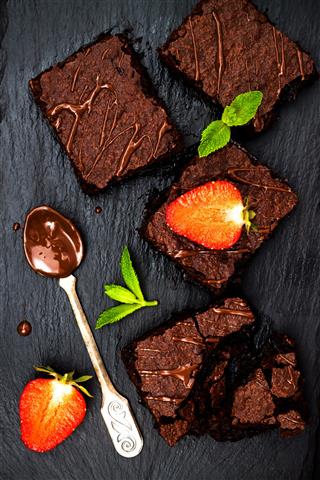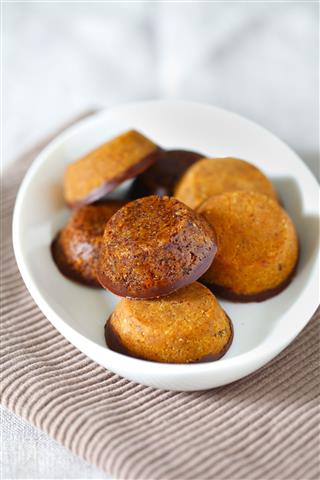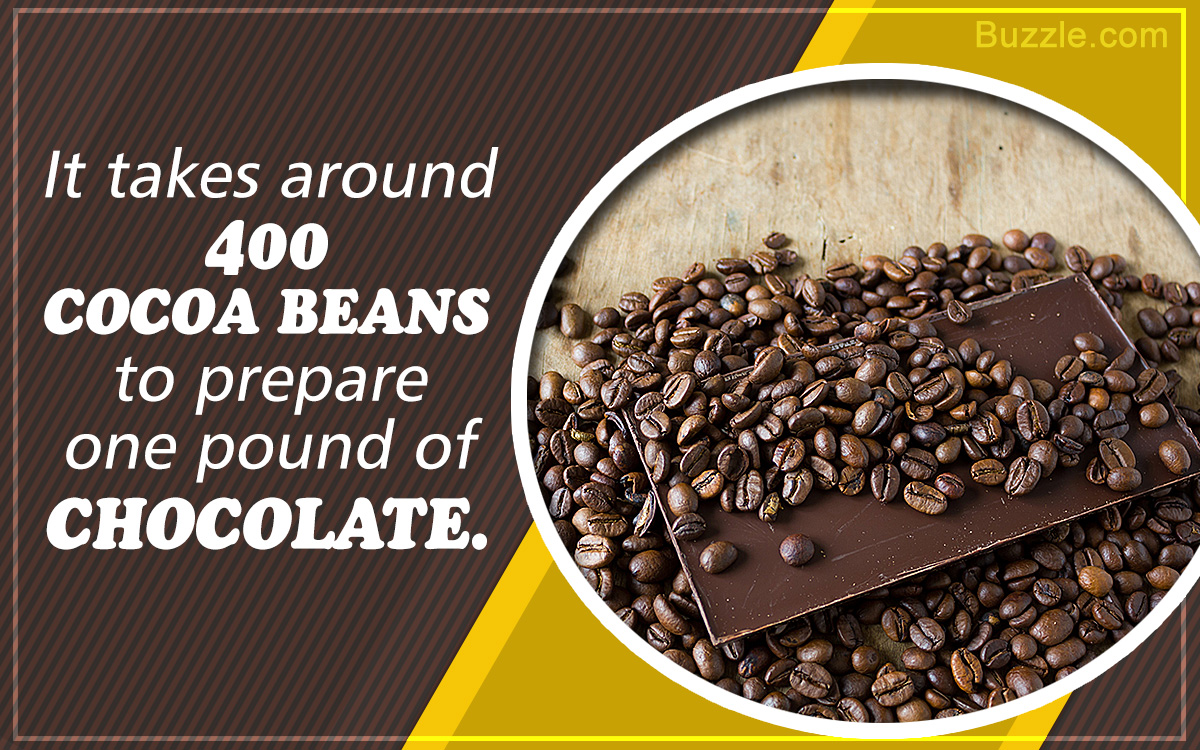
Many a time, we want to make a chocolate-flavored treat, but unfortunately, have no cocoa powder at home! What to do in such a situation? Well, although nothing comes close to using the real thing, there are a few substitutes you can use in case of emergencies. Scroll down to know more about these quick-fix substitutes.
Cocoa powder is derived by processing the bean of the cocoa tree, and is available in a powder form. It is obtained as a residual product after cocoa butter has been extracted from the dried and roasted cocoa bean. It is brownish in color and is the main component used to make chocolates. When sold without further processing, it is called natural unsweetened cocoa powder; however, if it undergoes an alkalization process, it yields a finished product that is called Dutch-processed cocoa powder, which possess a deeper, richer, and less bitter taste than unprocessed powder. In the process of alkalization, cocoa powder is treated with an alkaline agent to neutralize its pH. Most of the well-known chocolatiers use this processed cocoa to give their chocolates a rich depth of flavor.
If any recipe includes the use of baking soda and other such ingredients, it is better to use processed cocoa to avoid any reaction between ingredients. But, if you want to have a bitter and deep chocolate flavor to your baked desserts, you would have to opt for natural unsweetened cocoa powder. It is best to be used in brownies, cookies, and chocolate cakes. Since natural cocoa is acidic when used with baking soda, it causes the batter to rise while baking.
Substituting Between Cocoa Powders
Cocoa powder lends a rich chocolate flavor and dark color to the recipes. It can also be used with other chocolates for more intense flavor. However, you can also use a substitute while baking any of the desserts, which has cocoa as a primary ingredient. The processed and unprocessed cocoa powders can be substituted for each other, but one must remember to adjust the sugar and fat in the recipe, according to the taste.
- If you want a substitute for Dutch-processed cocoa powder, you will need 3 tablespoons, which is approximately 20 grams of natural unsweetened cocoa powder and ⅛ teaspoon of baking soda. If you are looking for cocoa powder substitution, you will need 1 ounce of unsweetened chocolate and add ⅛ teaspoon of baking soda, but make sure you reduce the fat in the recipe by 1 tablespoon.
- If the situation is reversed and you have Dutch-processed cocoa powder at home, but want natural unsweetened cocoa powder, all you will need to do is to take 3 tablespoons of Dutch-processed cocoa powder and add ⅛ teaspoon of cream of tartar, and either lemon juice or white vinegar. The other option you have is to use 1 ounce of unsweetened chocolate and reduce the fat in the recipe by 1 tablespoon.
- If you want to convert a cake recipe, which uses unsweetened chocolate to the one using cocoa, you will have to substitute 3 tablespoons of cocoa and add 1 tablespoon of unsalted butter for every ounce of unsweetened chocolate. You will have to dissolve the cocoa in a minimum of 2 tablespoons of liquid in the recipe, so that full flavor of cocoa is obtained.
- If you are looking for a substitute for baking chocolate, fret not. All you will need to do is melt one tablespoon of unsalted butter or vegetable oil and add three tablespoons of natural cocoa for every ounce of baking chocolate that is required for baking.
- If you want to know a substitute for chocolate chips, you will have to mix nine teaspoons of unsweetened cocoa powder with seven tablespoons of sugar and three teaspoons of shortening for six ounces of semi-sweet chocolate chips.
Substitutes for Cocoa Powder
Baking Chocolate
One ounce of unsweetened baking chocolate is equivalent to 3 tablespoons of natural unsweetened cocoa powder, and if used, the fat component of the recipe has to be reduced by one tablespoon.
Carob Powder
It is the Mediterranean equivalent of cocoa, and was used as such before cocoa bean was introduced in that region. It is made from roasted pods of the carob tree. It is recommended to decrease the required amount when using carob, as it is stronger in flavor. Also, since it is sweeter than cocoa, the sugar in the recipe should also be reduced, or it will taste too sweet.
Dark Chocolate
One ounce of powdered dark chocolate is equivalent to 3 tablespoons of cocoa powder. As in case of baking chocolate, here too, you will need to reduce fat in the recipe by 1 tablespoon. Depending on the sweetness of the chocolate bar, sugar can be proportionately reduced.
Chocolate Chips
Half a cup of semi-sweet chocolate chips can be powdered and used in place of 3 tablespoons of cocoa powder. Here again, you will have to reduce fat by 1 tablespoon, and also decrease sugar in the recipe.
These substitutes will help you in making decadent chocolate treats even in the absence of cocoa powder. But remember to adjust fat and sugar accordingly, and taste your way through the different stages of the recipe. A unique tip to creating amazing chocolaty delights is to add a pinch of salt to the recipe. Despite the odd nature of this addition, saltiness brings out and enhances the sweetness and chocolaty flavor!
